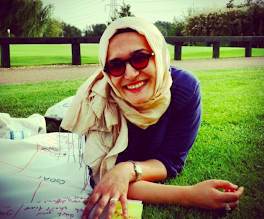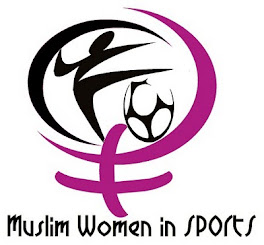
By
Linus Fernandes
It was a heady day in 2003, when Sania Mirza burst onto the stream of Indian sport consciousness, an awareness that if India were to ever have a world beater in an individual sport, it would not be a hirsute male, but a member of the weaker, fairer sex.
Sania Mirza erupted onto the scene like a long dormant volcano, heralding the birth of a new breed of Indian athletes, who not only excelled at their sport but were media savvy and clever enough to carve an image, a niche for themselves, in games other than cricket.
She was smart, she was intelligent, she was articulate, she was pretty, she was sexy, she was photogenic and she had attitude with a capital A. She carried off the anachronism of a nose ring with aplomb and style.
To top it all , she owned a killer forehand—the one that drew comparisons with her idol Steffi Graf —that was almost impossible to return when she dispatched the tennis ball with all the power and strength at her disposal. The forehand was flat and it was skiddy.
Sania Mirza had arrived on the stage of world tennis and Indian tennis would never be the same again. Or so we hoped.
Bouquets and Brickbats
We stood by her, we rooted for her, and we put up with all her shenanigans. We gathered around our television sets to cheer her every shot, her every return, her every serve.
She was the face of a modern India, a cosmopolitan India and most of all, she was a Muslim, a brave heart standing for progress contrasted against the conservatism and insularity of a minority community. She presented a brave new India; she had balls and she had gumption.
We craved learning what her T-shirts read; her sassy T-shirts hit the headlines as often as her brushes with the religious fanatics who chastised her for donning un-Islamic attire—mini-skirt and sleeveless vest—and being chummy with doubles partner Peer from the I of Israel. The evil I!
Some of her more interesting T-shirts needled "Well-behaved women rarely make history ," "I'm cute? No shit.," "Don't stand in my way," and "You can either agree with me, or be wrong."
This young tennis star, swimming in potential, was lapped up not just by the Indian media but by the international press as well. She appeared on the cover of Time magazine and was listed by the New Statesman as one among 10 youngsters who could change the world.
She happens to be the most searched Indian sportsperson on Google India ahead of Sachin Tendulkar, her appeal truly transcending notional, national boundaries.
She was hurt most when she was misquoted as endorsing pre-marital sex; a source of consternation for her in-the-know admirers as she came from a conservative Muslim background. Her choice of partners bears this out as she was first engaged to her cousin Sohrab Mirza but wed Shoaib Malik , a Pakistani cricketer . She has, of course, been linked to other sports stars and celebrities, the most notable being the dashing Yuvraj Singh, but then who believes the tabloids?
Tennis Career
Her singles career stats read 224-122 and she has one WTA title, the 2005 Hyderabad Open, and thirteen ITF titles in her singles kitty. She also enjoys playing doubles and has won eight WTA and four ITF tourneys. Her other sporting honors include a gold in mixed doubles, a silver in singles and a silver in team tennis all at the 2006 Doha Asian Games .
Her best singles performance in a Grand Slam has been a fourth round finish at the 2005 US Open.
The year 2007 was her finest one. She reached a career-high ranking of 27th. But over the years, her opponents have grown smarter; they wait and prey on her many errors. Her one-dimensional game was soon exposed; the mishits kept piling up as the rallies and matches grew longer.
Further, she was plagued by injuries, mostly to her wrist. Injuries that have dogged her more than any controversies.
She is not the fittest of players and she does seem to be carrying excess fat compared to the extremely fit and stronger players on the circuit. She is also just 5 ft. 8 inches, tall perhaps by Indian standards, but average compared to other players on the WTA tour. She, however, plays fearlessly and is not afraid to launch into her groundstrokes at the slightest opportunity.
Her finest hour, arguably, was the doubles championship she lifted at the Australian Open in 2009 in tandem with Mahesh Bhupathi. She is India’s foremost woman player ever and she cannot be blamed for not having an Indian tennis role model to emulate. She has blazed a path for Indian Eves and it is for them to take up the torch and surpass her, if they can.
A Second Coming?
Sania Mirza is not to be counted out yet. In her own words, she intends to give tennis a go for a couple of years following her recent marriage.
She has, just last week, had her best performance in recent times, reaching the final of the Aegon classic . That is not an achievement to be sneezed at, although the ITF and WTA tournaments are not on the same plane and Mirza was the top seed in the tournament. (Maria Sharapova too, on her recent return from injury, preferred to give the bigger tournaments a miss and participated in second-tier tournaments to regain her confidence and boost her points tally.)
Can Sania regain her lost glory? Can she arrest her slide?
Her current ranking is a dismal 142. Can she fulfill the promise she once displayed? Can she overcome her injuries and be the beacon for Indian women tennis players for some more years to come?
Or is she destined to follow the path of other Indian tennis players who have foregone any chances at personal glory and prefer their percentages in doubles? (If there is one thing I begrudge Leander and Mahesh, is that once they stumbled on the magic formula to lucre in doubles, it became an easy act to follow for the other tennis players from India.) Will Sania lose her way along the same route?
Only time will tell!
Source: http://bleacherreport.com/articles/425635-sania-mirza-whither-goest-thou










